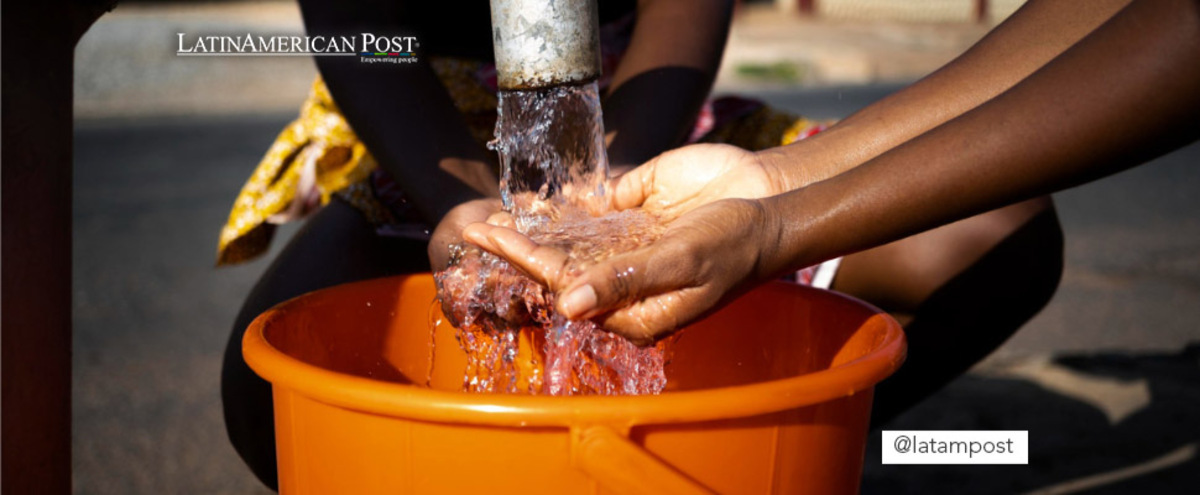Mexico City Confronts Historic Water Crisis Amid Drought
Mexico City faces unprecedented water cuts as drought depletes reservoirs, prompting Mexican authorities to impose strict rationing for over 20 million residents.

Photo: Freepik
Latin American Post Staff
Listen to this article
Leer en español: Ciudad de México enfrenta histórica crisis hídrica en medio de sequía
In an extraordinary response to an escalating water crisis, Mexican officials have announced severe cuts to Mexico City's water supply, a drastic measure precipitated by a prolonged drought that has left the city's reservoirs critically low. The Mexican National Water Commission and the city's mayor revealed the cuts at a press conference, signaling a deepening crisis in one of the world's largest metropolises.
Cutzamala System at Historic Lows: A City Grappling with Scarcity
The Cutzamala system, a crucial network of three reservoirs supplying water to over 20 million inhabitants in the Valley of Mexico, has reached historic seasonal lows. Currently, water levels are 44% lower than typical for this time of year, a dire situation for a city grappling with water scarcity.
Officials initially imposed an 8% restriction on water from the Cutzamala system on October 17. However, the latest measures represent a more severe 25% cut in the system's total flow. This significant reduction will primarily affect twelve boroughs west of the city, lowering water pressure until the restrictions are lifted.
The announcement of these restrictions, which came only four hours before they took effect, has left many residents uncertain and apprehensive. Mexico City has faced water cuts due to strikes or repairs, but never for such a prolonged duration and never due to drought conditions.
The root of this crisis lies in a combination of factors, primarily the abnormally low rainfall exacerbated by climate change. Studies indicate that climate change is intensifying El Niño patterns, leading to periods of decreased precipitation. Germán Arturo Martínez Santoyo, head of the water commission, acknowledged the extreme weather phenomena impacting the Cutzamala System.
Mexico, as a whole, experienced 25% less rainfall than the average over the past three decades this year. The situation is so severe that over three-quarters of the country is experiencing drought, with 93% of the Valley of Mexico classified as lacking.
In response to the crisis, officials announced the drilling of three new water wells and improvements to 58 existing ones. However, experts warn that the city's groundwater is already severely depleted, raising concerns about the sustainability of this approach. Additionally, the commission is continuing work on a new water treatment plant at the Madin reservoir, just northwest of Mexico City.
Global Challenge: Climate Change Impacts on Essential Resources
The water crisis in Mexico City is emblematic of a broader global challenge as cities worldwide grapple with the impacts of climate change on essential resources. The situation underscores the need for sustainable water management practices and long-term planning to address the underlying causes of water scarcity.
This crisis also highlights the need for a paradigm shift in how cities approach water usage. Conservation efforts, investment in water recycling technologies, and rainwater harvesting are becoming increasingly crucial in the face of changing weather patterns.
Moreover, the situation in Mexico City is a stark reminder of the social implications of water scarcity. Access to clean water is a fundamental human right, and water shortages can exacerbate inequalities, impacting the most vulnerable populations the hardest.
Also read: Rising in the Ranks: Claudia Sheinbaum's Path to Presidential Front-Runner in Mexico's 2024 Election
The water cuts in Mexico City represent a response to an immediate crisis and a call to action for cities worldwide. As climate change continues to impact global water supplies, urban centers must adapt and innovate to ensure water security for all residents. The situation in Mexico City could be a harbinger of what many other cities might face shortly, making it imperative to learn from this crisis and develop resilient, sustainable water management strategies.




